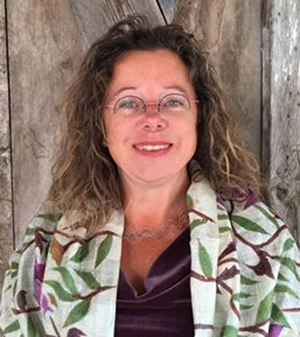
Lauren Abrey’s career in medicine arose from the impact she believed medicine could make. Throughout her career, she has forged connections with the patients she has served as well as the teams she has led.
In this latest installment of “Novartis Presents: Women in Science,” Abrey discusses how the power of personal connections can shape clinical development – and change the culture of a company.
Your focus has ranged from brain cancer to solid tumors and rare diseases. What sparked your interest in these areas?
When I was 12, I was in an accident that caused a serious head injury. I had a major intracranial hemorrhage from a skull fracture. At the time, computed tomography scans were a new technology – so new that there wasn’t one in my hometown. I had to be transported to a hospital in another city, where they discovered the bleeding that required surgery. That experience gave root to my interest in medicine and, more specifically, neurology and the brain.
Why did you decide to pursue medicine as a career?
I wanted to do something important and studying medicine was a way to do that. I didn’t necessarily grow up thinking I would become a doctor. I went to Georgetown University [in the US] for medical school, but it wasn’t until my third year, when I walked into a hospital, that I really felt I had found my calling. Helping patients made all of that science and training mean something, and I knew I had found my home.
We have a lot of information to share, and we need to contextualize it, simplify it and listen to questions so we can come up with helpful answers.
How did you find your way to oncology?
As I began my career with a fellowship at Memorial Sloan Kettering, I never looked back. I was struck by the fact that there are patients who develop neurologic symptoms before they develop cancer symptoms. Your body works to fight the cancer with antibodies, and those same antibodies can attack your brain or nerves. I wanted to understand why a few patients seemed to mount a robust immunologic response to attack their tumor (and often had a better outcome), while most lung cancer patients had almost no response.
How did that work bring you to Global Medical Affairs at Novartis?
My husband, an immunologist, had an opportunity to lead a discovery team at the Novartis Institutes for BioMedical Research about 10 years ago. We moved to Basel, Switzerland, with our two daughters, and I started a role at another pharmaceutical company in drug development and I helped lead a major cultural integration at another as the local site head. While I had a wonderful career, Novartis offered me an opportunity to expand the therapeutic areas I serve through a role in Global Medical Affairs.
What is exciting about the work you’re doing today, specifically in lung cancer?
This year I’ve celebrated two important milestones: my one-year anniversary at Novartis and my 25-year wedding anniversary. I share this because my husband and I have been talking about the importance of immunology and inflammation in cancer for a long time. The role of IL-1B is a critical link in this story.
IL-1B, a cell protein that can have an impact on cell growth and inflammation, was first discovered in the 1970s, and it took nearly 20 years to come up with drugs that specifically target this pathway in a way that is beneficial to patients.
Targeting IL-1B and tumor-promoting inflammation has the possibility to lead the next wave of immuno-oncology. As oncologists, we have been privileged to witness the value that checkpoint inhibitors have brought to our patients. However, there is still a great unmet need for many lung cancer patients. There is a lot of work to do to help people understand how to leverage the immune system to fight cancer. We have a lot of information to share, and we need to contextualize it, simplify it and listen to questions so we can come up with helpful answers. It’s a tremendous amount of work, but it’s important and terrific for the future of oncology.
What is the most important advice you can share as a leader?
Culture is just as important as the work we do. For me, that means listening to others, helping them embrace change, and also sometimes accepting the fact that change can take longer than we would like. It needs time to evolve, and the only way for it to happen is for people to talk about it. That’s why it is important to me to bring people together at informal social events, and stop and have coffee with people. I want to create opportunities for them to talk to me and engage me face to face. It goes a long way. Those small connections make the biggest difference.

“Novartis Presents: Women in Science” is an ongoing series showcasing women at Novartis who are helping develop innovative oncology medicines for people with cancer and related diseases.
Lauren Abrey, one of our #WomenInScience, describes how her career path led her to the Global Medical Affairs team at Novartis



